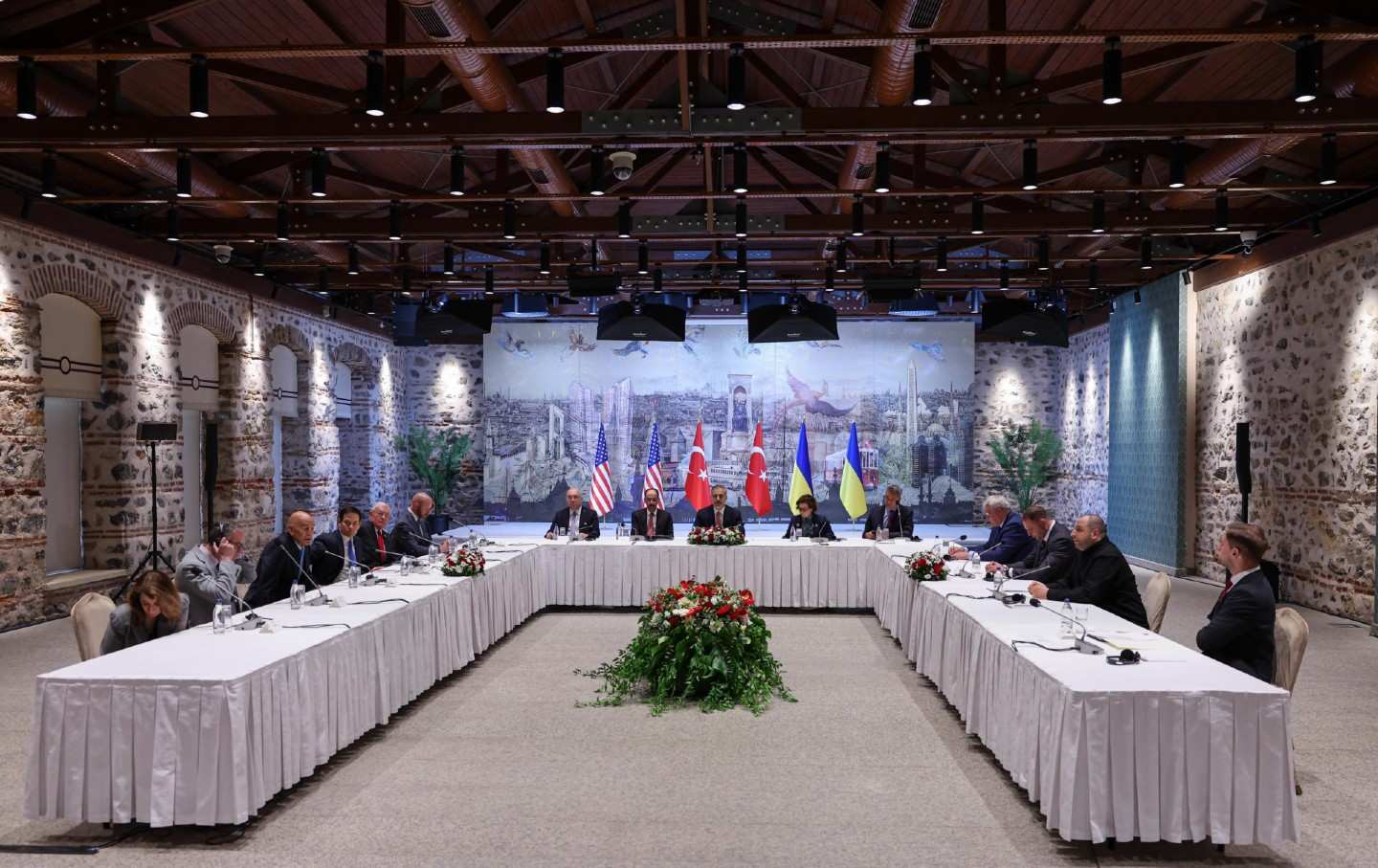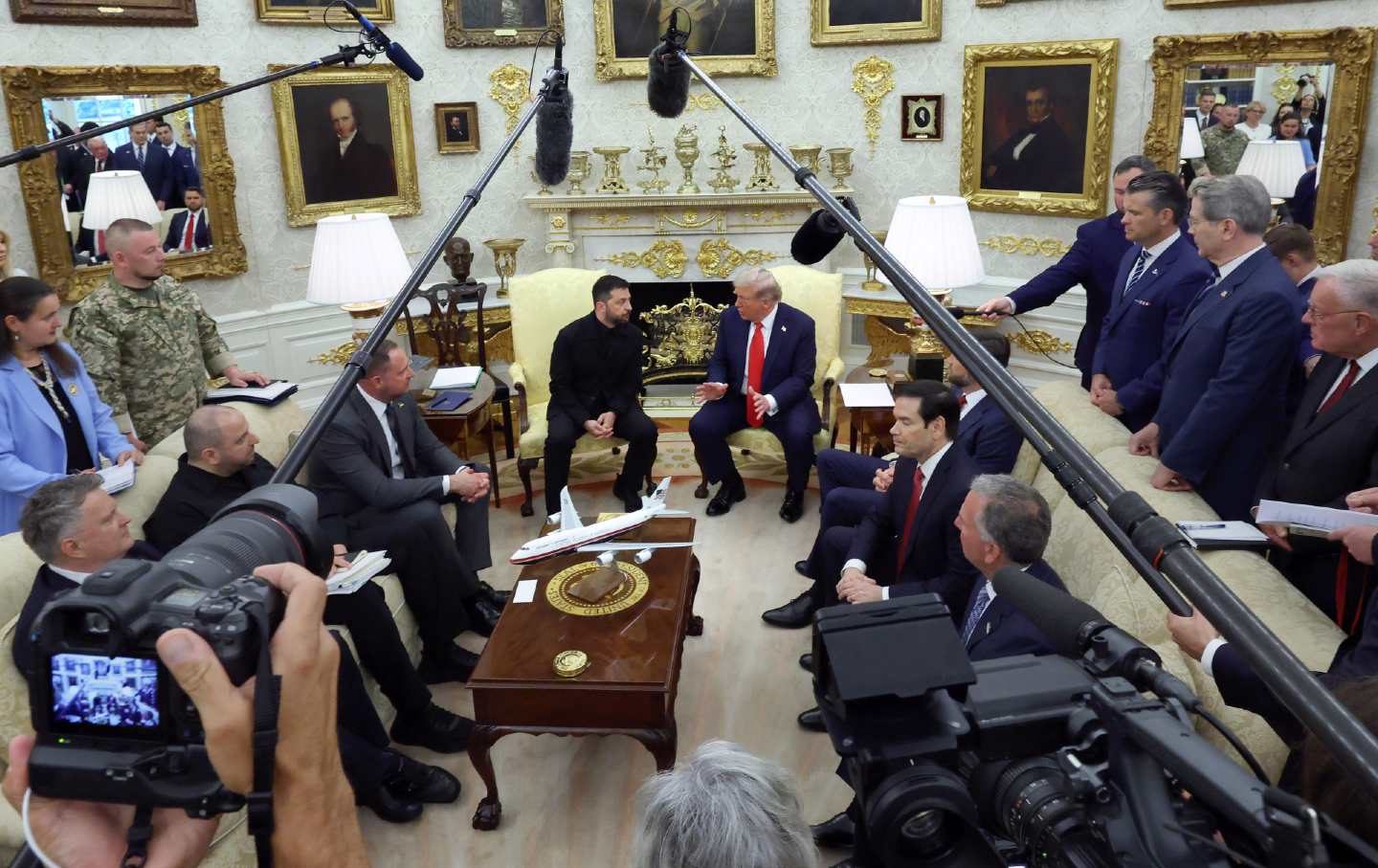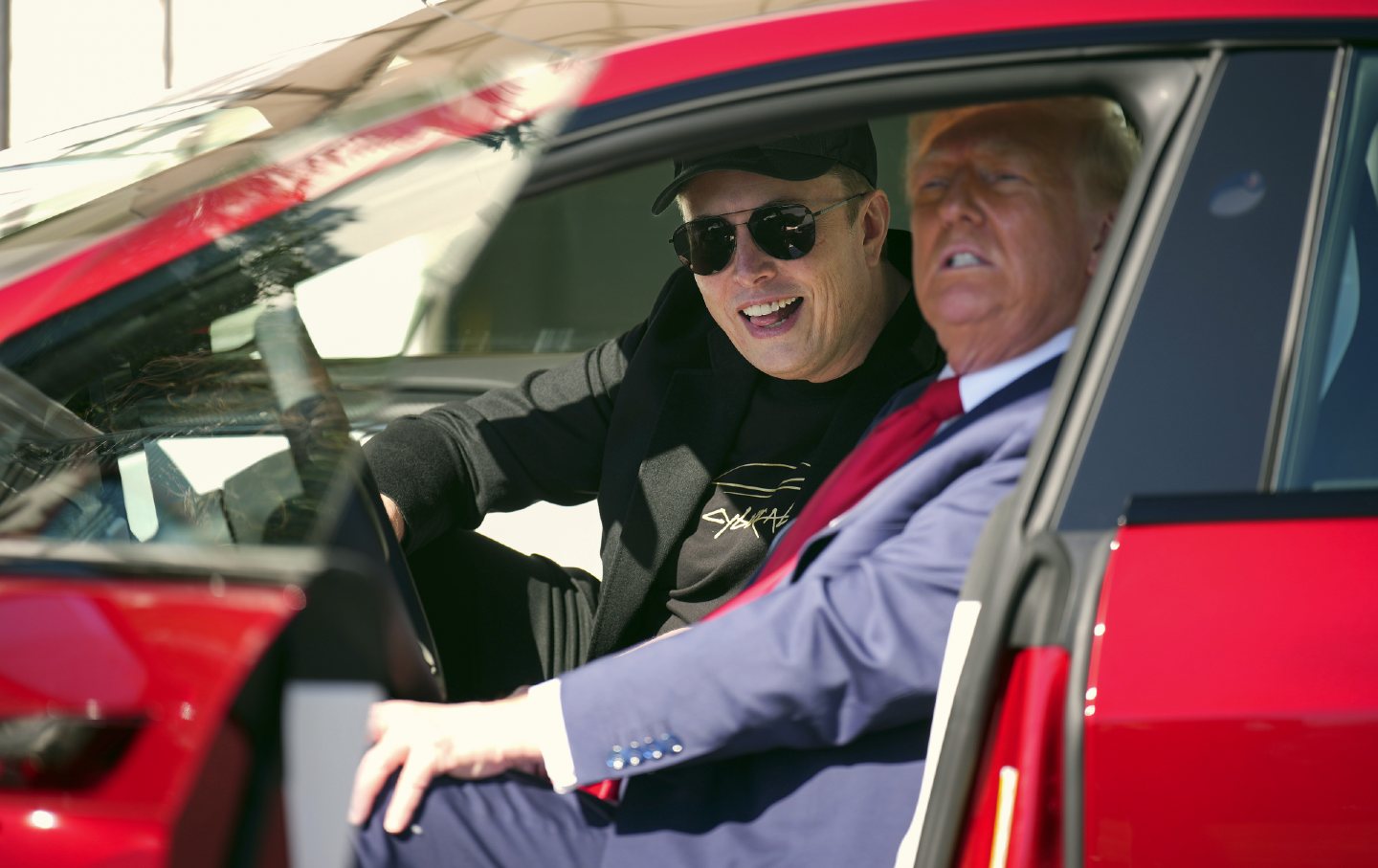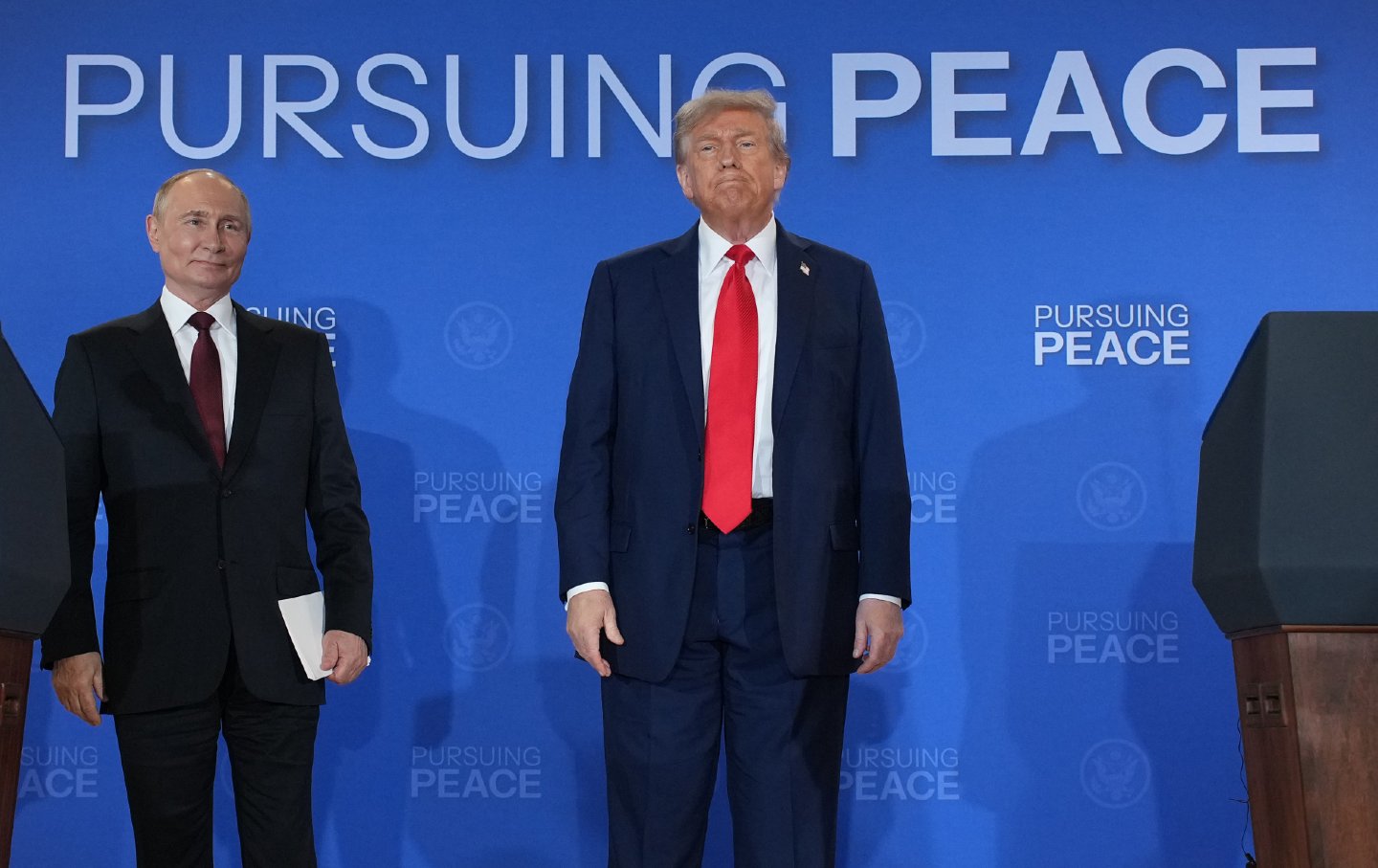Why US Engagement Is Essential in Setting Terms for Peace in Ukraine
The Russian and Ukrainian positions are far apart, and absent US sticks and carrots, there seems little prospect they will come together.

President Trump’s new strategy of getting Russia and Ukraine to negotiate directly might seem to make sense. In the end, after all, they will have to sit down together to sign any agreement that can be reached. Without active US involvement, however, that end is likely to be postponed for a very long time; and as Trump has said, that time will be measured not just in months or years, but in tens of thousands of human lives.
The Russian and Ukrainian positions are far apart, and absent US sticks and carrots applied to both, there seems little realistic prospect that they will come together. US engagement is also essential because a new relationship between the United States and Russia is the greatest incentive that Moscow can be offered in return for making peace with Ukraine.
As a European, I say this with deep regret, but until the basic shape of a peace settlement has been worked out, the European Union should be left out of the process. European positions are totally incoherent. European governments, media, and think tanks say that Putin is playing for time, because the war is going Russia’s way; but they themselves seem determined to keep the war going (and some of them have said quite openly that the purpose is to keep Russia pinned down in Ukraine, irrespective of the cost in Ukrainian lives and territory).
They call for additional pressure on Russia to make peace, but they either refuse to set out concrete peace terms, or set terms that essentially constitute Russian surrender and that there is no chance whatsoever that even the most moderate members of the Russian establishment could accept. They call for additional EU economic sanctions on Russia and increased European military aid to Ukraine if US aid is withdrawn, but other articles in the very same publications admit that sanctions so far have failed, and that the EU cannot in fact replace US aid in key areas.
For the Trump administration to bring the two sides to peace, it will have to do something that it has not really done so far: develop a set of detailed conditions that it regards as reasonable and practicable and a strategy for bringing the parties to agree to them. To craft this strategy effectively, it is essential to realize that a debate is taking place in the Russian establishment over Ukraine strategy; and while Putin of course will in the end be the one to decide, it does not appear that he has made up his mind yet between the various positions. This is something that has been completely obscured in Western media and think tank “analysis” by the portrayal of the Russian establishment as a monolith totally subservient to and identical with “Putin.”
There are two main camps when it comes to Ukraine in the Russian establishment (though each of them contains several different elements that differ according to the specific issue). Broadly speaking, the first aims at the complete defeat and subjugation of Ukraine, including its disarmament, the replacement of its government. Its members believe that if Russia continues the war—if necessary for years—Ukraine will collapse, and these aims can be achieved.
This hard-line camp has not only given up any hope of improved relations with the West but it also actively welcomes Western sanctions and isolation from the West, believing that this encourages Russia to develop its own economy. Adherents of this view are strongly influenced by the strands of Russian nationalism that view Russia as its own civilization and separate identity.
The second camp believes that Russia can gain great advantages from a reconciliation with the United States and, thereafter, with Europe. Its adherents are highly skeptical that complete military victory is possible, and do not think that fighting on to conquer a few more ruined and depopulated Ukrainian cities is worth the cost and risk to Russia. They are therefore prepared to accept the US proposal for a ceasefire along the existing battlefront, and that Ukrainian disarmament should be limited to long-range missiles.
They are deeply troubled by the prospect that long-term isolation from the West will lead to subservience to China. These people are descended from the tradition that sees Russia as part of Western civilization, albeit an autonomous one with its own particular identity and interests. It is however vital to understand that like “Westernizers” in the Russian state service of the 18th and 19th centuries, adherents of this view are also patriots devoted to the idea of a strong Russia. They advocate compromise with Washington and Kyiv, not the de facto Russian surrender that is still being demanded by the EU.
Assuming that Putin has not made up his mind between these two positions, then clearly a central part of US strategy must be to present a combination of pressures and incentives that will weaken the first camp and strengthen the second one. The pressure obviously consists of continued US military and intelligence aid to Ukraine, and sanctions against Russia. Without corresponding incentives however, all this pressure will do is to strengthen the Russian hard-liners, who—as stated—actually welcome isolation from the West.
The incentives that the US administration can offer to Russia consist of sanctions relief, and the reopening of trade with Russia. Even if the Europeans do not initially agree to this, without US participation their sanctions would be far less effective. Washington can also offer a bar on US military deployments in Poland, the Baltic States, and Romania, a veto on all further NATO expansion, negotiation of new nuclear arms treaties, and some form of institutionalized consultation mechanism on European security.
In return, the US administration should require that Russia drop or heavily qualify those demands on Ukraine that are clearly impossible for any Ukrainian government to accept: notably, that Ukraine should withdraw from further territory, reduce its armed forces to a level where they could not defend the country, and suppress a range of Ukrainian national groups and symbols. The United States can, however, quite justly agree with the need for Ukrainian constitutional guarantees of Russian language and cultural rights in Ukraine.
If Russia refuses these terms, then the war will continue. If Moscow can be brought to accept them, then the US should present them to the Ukrainian government and give it the choice of accepting them or fighting on without US support. This may seem harsh, but it is a great deal less harsh than what Ukraine would face in the event of Russian victory; and as everyone now seems to agree, time is on Russia’s side.
Take a stand against Trump and support The Nation!
In this moment of crisis, we need a unified, progressive opposition to Donald Trump.
We’re starting to see one take shape in the streets and at ballot boxes across the country: from New York City mayoral candidate Zohran Mamdani’s campaign focused on affordability, to communities protecting their neighbors from ICE, to the senators opposing arms shipments to Israel.
The Democratic Party has an urgent choice to make: Will it embrace a politics that is principled and popular, or will it continue to insist on losing elections with the out-of-touch elites and consultants that got us here?
At The Nation, we know which side we’re on. Every day, we make the case for a more democratic and equal world by championing progressive leaders, lifting up movements fighting for justice, and exposing the oligarchs and corporations profiting at the expense of us all. Our independent journalism informs and empowers progressives across the country and helps bring this politics to new readers ready to join the fight.
We need your help to continue this work. Will you donate to support The Nation’s independent journalism? Every contribution goes to our award-winning reporting, analysis, and commentary.
Thank you for helping us take on Trump and build the just society we know is possible.
Sincerely,
Bhaskar Sunkara
President, The Nation
More from The Nation

Israeli Soldiers Abused Me Before. I’m Terrified That They’ll Do It Again. Israeli Soldiers Abused Me Before. I’m Terrified That They’ll Do It Again.
Israel is invading Gaza City again. The trauma of what they did to me and my family during their last invasion haunts me every single day.

The Ukraine Peace Process Is Moving Quite Fast The Ukraine Peace Process Is Moving Quite Fast
Here are the openings—and obstacles.

Dismantling USAID Wasn’t Just Cruel—It Was Stupid Dismantling USAID Wasn’t Just Cruel—It Was Stupid
In an interconnected world, those who are alone, to use a favorite word of the president’s, are losers.

Trump Won’t Deliver Peace to Ukraine—or Anywhere Else Trump Won’t Deliver Peace to Ukraine—or Anywhere Else
No one can trust the United States when a fickle man-child controls its foreign policy.

Presidents Trump and Putin Must Seize the Moment in Alaska Presidents Trump and Putin Must Seize the Moment in Alaska
The war in Ukraine is a regional security and humanitarian tragedy, but regarding nuclear weapons, Washington and Moscow stand to benefit from working together.

The Bookstores Bridging Divides in Israel The Bookstores Bridging Divides in Israel
People of goodwill on either side of the horror find unity in the search for a good read.


